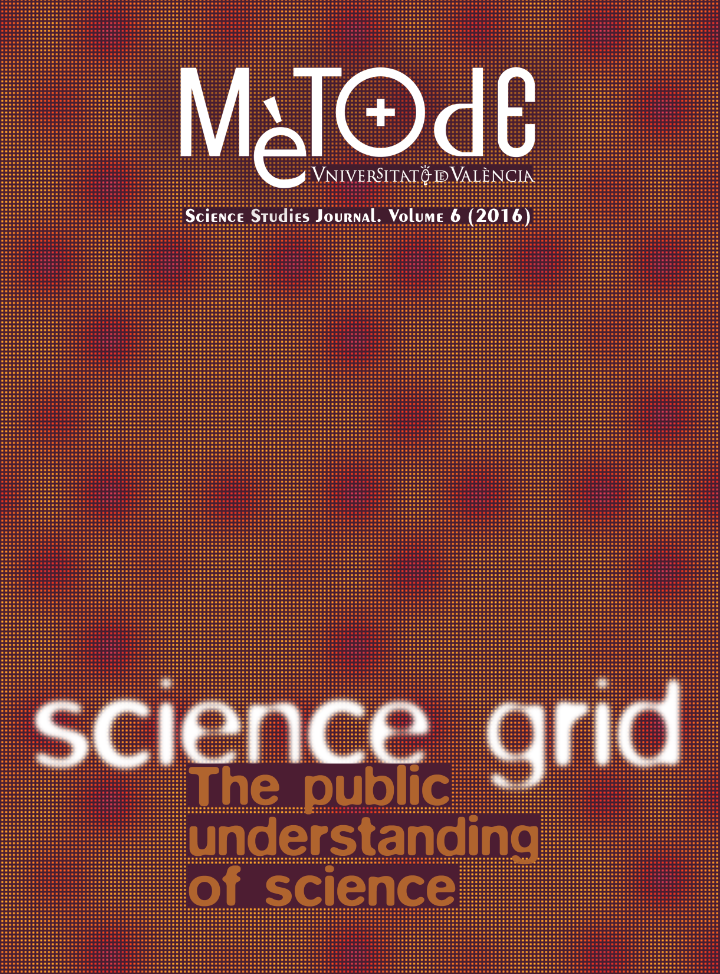Paradox and argumentation: From rhetoric to the refinement of mathematics
DOI:
https://doi.org/10.7203/metode.6.4553Keywords:
rhetoric, logic, argumentation, paradox, self-reference Abstract
Abstract
Paradoxes –?and the problem they present for logic?– can be traced as a subject for reflection from the Sophists to contemporary language philosophers and mathematicians, visiting Aristotle, Abel and Russell along the way, during which time rhetorical algebra transitioned into syncopated algebra and then to symbolic algebra. The paradox can be seen as an obstacle to aseptic reasoning, but it can also act as a compelling stimulus for imagination and the practice of argumentation or persuasion, a rhetorical tool that has encouraged rigorous thinking throughout history, in an attempt to avoid «concealed» lies in all kinds of discourses. It is, therefore, a challenge that inspires creativity within a culture indebted to the rhetorical tradition.
 Downloads
Downloads
 References
References
Hofstadter, D. R. (1979). Gödel, Escher, Bach: An eternal golden brain. New York: Basic Books.
Nagel, E., & Newman, J. R. (1970). El teorema de Gödel. Madrid: Tecnos.
Serrano, S. (1985). La paradoxa. Barcelona: Planeta. Serrano, S. (1996). Comunicació, llenguatge i societat. Barcelona: Edicions 62.
Vega Reñón, L., & Olmos González, P. (Eds.). (2011). Compendio de lógica, argumentación y retórica. Madrid: Trotta.
Downloads
Published
How to Cite
-
Abstract1028
-
PDF811
Issue
Section
License
![]()
All the documents in the OJS platform are open access and property of their respective authors.
Authors publishing in the journal agree to the following terms:
- Authors keep the rights and guarantee Metode Science Studies Journal the right to be the first publication of the document, licensed under a Creative Commons Attribution-NonCommercial-NoDerivatives 4.0 International License that allows others to share the work with an acknowledgement of authorship and publication in the journal.
- Authors are allowed and encouraged to spread their work through electronic means using personal or institutional websites (institutional open archives, personal websites or professional and academic networks profiles) once the text has been published.





